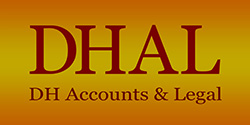The tax year in UK is from 6 April to 5 April the following year. Self Assessment is a system HM Revenue and Customs (HMRC) uses to collect Income Tax.
Tax is usually deducted automatically from wages, pensions and savings. People and businesses with other income must report it in a tax return.
Who must send a tax return
You’ll need to send a tax return if, in the last tax year:
-
you were self-employed even though the tax due may in fact be ‘nil’
-
you were a company director
-
you got dividends from shares
-
you had income from abroad that you needed to pay tax on
-
you lived abroad and had a UK income
-
you got £2,500 or more from in untaxed income
-
your savings or investment income was £10,000 or more before tax
-
you made profits from selling things like shares, a second home or other chargeable assets and need to pay Capital Gains Tax
-
your income (or your partner’s) was over £50,000 and one of you claimed Child Benefit
-
you had a P800 from HMRC saying you didn’t pay enough tax last year
Deadlines
HMRC must receive your tax return 2016-17 and any money you owe by the deadline.
-
paper tax returns send by midnight 31 October 2017
-
online tax returns send by midnight 31 January 2018
-
pay the tax you owe by midnight 31 January 2018
You’ll usually pay a penalty if you’re late. Do it early and have peace of mind!
Check if you need to fill in a Self Assessment tax return on the GOV.UK
Need help with completing your tax return, please contact us and our dedicated team will be happy to help.
Contact us
Follow us on Facebook to find more tips in business, accounting, tax and legal.
